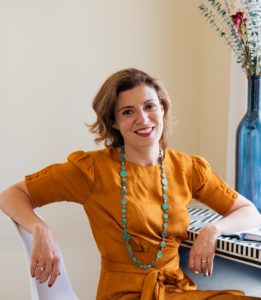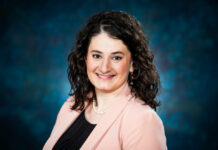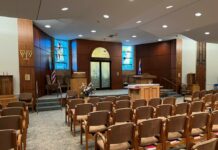
About a month ago, Ilana Horwitz, a Jewish studies professor at Tulane University, joined a synagogue for the first time in eight years.
The professor, 40, who grew up in Northeast Philadelphia and graduated from the Akiba Hebrew Academy (now Jack M. Barrack Hebrew Academy), decided to return to her faith after completing a paper last fall on how the pandemic impacted low-income Jews in the Philadelphia area.
In June, the paper was accepted for publication in Contemporary Jewry, “the only scholarly journal that focuses on the social scientific study of Jewry,” according to its website.
Horwitz’s paper, titled “Ties in Tough Times: How Social Capital Helps Lower-Income Jewish Parents Weather the Economic Hardship of COVID-19,” has a straightforward conclusion.
Building Jewish relationships is the best way for Jews to get through a difficult time. And to build a strong Jewish network, the best place to start is the synagogue.
“Partly, yeah,” said Horwitz on whether her paper convinced her to join. “Maybe in some sort of subconscious way.”
Horwitz came to the research because, as she wrote, “most studies of religious-based disaster recovery focus on churches.” She wanted to explore those dynamics in the community she grew up in, and that had helped during her own difficult time as a teenager.
After her family emigrated from the Soviet Union, her father died in a car accident. The driver behind him suffered a seizure.
The family had no idea how to sit shiva. So every morning, Akiba bussed Horwitz’s eighth-grade classmates to her house to say the Mourner’s Kaddish. Then, the school bussed them back to Merion Station, about an hour away, for first period.
“The way Akiba supported my family is what makes Jewish institutions such vital sources of support,” Horwitz said.
For her paper, Horwitz interviewed “36 parents who self-identified as Jewish, had at least one school-age child and earned less than the median Jewish household income in the Philadelphia area,” according to the introduction.
“About half (47%) of families were in a worse financial situation because of COVID-19,” Horwitz wrote later.
And among the parents surveyed, many received help from local Jewish organizations, though some didn’t. A little later in the paper, Horwitz explained how Jewish institutions helped low-income parents.
“Jewish organizations started delivering food to clients and sent families gift cards to supermarkets,” she wrote.
“Rabbis were able to support community members using discretionary funds,” she added.
“Several people told us about receiving phone calls from their rabbi asking if they needed help, and then receiving an envelope with cash,” Horwitz concluded.
But those people had existing relationships with local Jewish organizations, like the Jewish Family and Children’s Service of Greater Philadelphia or a synagogue, often established through family members or friends who connected them to those organizations.
In the sociological language in which Horwitz is fluent, the horizontal ties with family members and friends are “bonding” relationships. And they are most often the connections that lead to vertical connections with community leaders, called “linking” relationships.
It’s this connection between “bonding” and “linking” relationships that creates a strong inner circle for a family, a strong community for a region and a strong social fabric for society, Horwitz said. But as evidenced by the people who didn’t receive help during COVID, too few families are building these bonds.
The synagogue, though, can be an answer to the problem, she said. It offers bonding connections in the form of other congregants and linking connections in the form of the rabbi, who often has access to money and ties to other institutional leaders.
“This study suggests that involvement in some Jewish organizations, especially synagogues, can yield significant dividends in unexpected ways,” Horwitz wrote.
For low-income families, the synagogue is not an unnecessary expense, as many people think. It’s actually the opposite.
“Economic hardship may be the best time to maintain synagogue affiliation, since synagogues can function as a system of economic and social support,” Horwitz wrote.
Horwitz took her own advice, but she’s worried that others in her generation are too anti-institution.
“Most people don’t recognize the social upside of joining a synagogue, even if the religious dimension doesn’t resonate to you,” she said.
The Jewish Federation of Greater Philadelphia has the same concerns, according to Brian Gralnick, its director of social responsibility.
Gralnick said to inform younger Jews of Jewish Federation services, the organization is planning on doing more online advertising.
“They aren’t coming through our synagogue doors,” he said.
[email protected]; 215-832-0740






